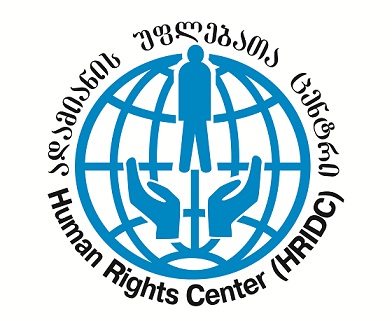Address of Human Rights Center about the Problems of Convicted Person with Disabilities
March 22, 2017

Early release of the convicted, who have grave health problems, is still a problem in the Georgian penitentiary system. Joint permanent commission of the Ministries of Healthcare and Corrections makes decisions based on the information provided by law enforcement bodies. The commission abuses its power and violates the resolution and normative act, which states that if the disease of the convicted person is one of those on the list of grave and incurable diseases, the convicted person shall be early released from prison.
Article 74 of the Criminal Code of Georgia “The joint commission of the Ministries of Healthcare and Corrections may release the person from punishment who before or after committing the crime fell ill with some serious disease that hinders the service of the sentence.”
The joint commission operates in accordance to the resolution and the decree of the Minister of Healthcare and Social Welfare, which approved the list of grave and incurable lists that may act as pre-condition for early release from prison.
Recently, the joint commission discussed the petition of the inmate of the Jail Hospital # 18 and passed negative decision on his early-release claiming that although the convicted person is sick with the disease which meets the criteria for the early-release, the commission relied on the information provided by the MIA and chief prosecutor’s office and passed negative decision.
Convicted person S.S. who has been serving his term in prison # 18 since 2014 is disabled person. He cannot move alone and uses wheelchair. According to the information provided by the convicted person, he has spent more than 2 years in grave sanitary-hygiene conditions that is equal to inhuman treatment.
The joint commission of the Ministries of Healthcare and Corrections abuse its power when they request information about the sick inmates from the MIA and chief prosecutor’s office and makes decisions based on the provided information.
In accordance to all legislative acts, the Commission shall consider only the health conditions of the applicant prisoner and neglect any information provided from law enforcement bodies.
Unjustified presence of the gravely diseased inmates in penitentiary establishments is one of the reasons of the overcrowdness in the facilities that was raised as main issue in the annual report of the Council of Europe. Violation of hygiene-sanitary norms and inadequate living conditions for disabled prisoners was the main topic of the recommendation of the Public Defender of Georgia to the Ministry of Corrections.
Human Rights Center calls on:
The Ministry of Corrections to take recommendations of the Council of Europe, Public Defender and local NGOs into account and create adequate conditions for the disabled prisoners.
The joint commission of the Ministries of Corrections and Healthcare to make decisions about the applications of diseased prisoners only in accordance to the Article 74 of the Criminal Code of Georgia and stop the practice which contradicts the law.
Human Rights Center
News
December 13, 2023
Ethnic minorities outside the peace dialogue
November 6, 2023
‘Peace’ agenda of political parties
Popular
Articles
February 13, 2024



